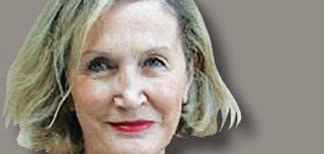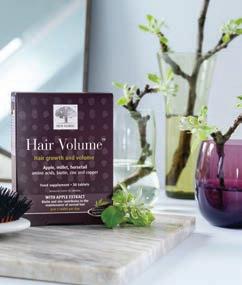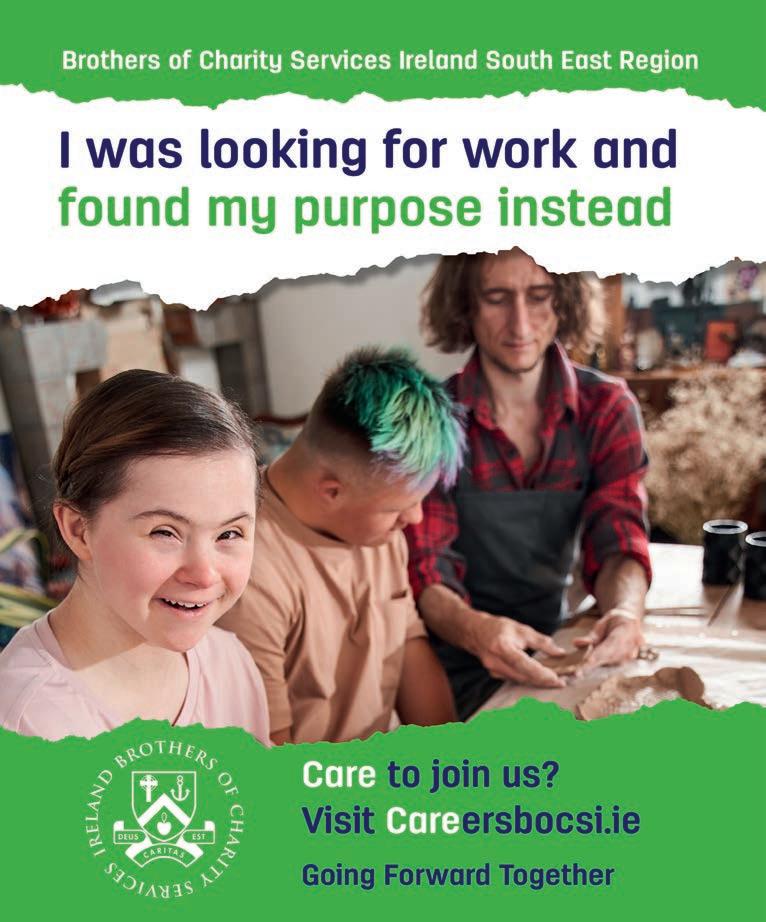
12 minute read
Marianne Heron
As I See It

Advertisement
Marianne Heron Men and women, and the transgender debate


Was Adam a Madam and Eve a Steve? ese days you might begin to wonder about the Garden of Eden story where God created man and woman, given some of the issues raised by gender uidity.
Gender is a social construct. We are conditioned to behave in ways that are considered appropriate and views on what is acceptable for each sex evolve. Now, though, women play rugby and men may be stay-at-home dads, something that would have been unthinkable a few decades ago.
Biology may not be our destiny as far as gender goes but surely when it comes to sex – being a man or a woman – it does de ne us. Or so I thought, until I listened with mounting disbelief to a radio programme where it appears altered de nitions attack our understanding of what it means to be a woman. e HSE have changed Maternity Legislation under the Work Life Balance and Miscellaneous Provisions Bill. e word woman is replaced with person so that, for instance, people with cervixes, rather than women, get cervical cancer, though men, mind you, still get prostate cancer.
Why is this happening you may ask? It is because the transgender pressure group Transgender Equality Network is now in uencing public policy around a tiny number of individuals without the rest of us, particularly women, who are 51% of the population having any say in matter.
Transition involves people who wish to identify according to how they feel rather than their biology, known as gender self-identi cation. Men may wish to identify as women and vice versa. Some ‘self-identi ers’ change their name, dress and pronouns while others may seek surgical reconstruction and hormone treatment.
Self-declaration doesn’t change the fact that sex is genetically determined, in that we born either male or female. Only women can give birth, menstruate and lactate and only men can produce sperm. No matter how much surgical reconstruction and hormone treatment a man who wishes to identify as a woman may undergo, he will not be able to reproduce. He might have a surgically created vagina, maybe even a pseudo cervix, but you can bet your bottom dollar that that cervix doesn’t lead anywhere. Maybe at some very future date it will be possible to transplant the entire reproductive equipment but not anytime soon.
It seems ironic that only a few decades after women have got hard-won equality rights, their very de nition is now under attack. I am not against an individual belonging to any of the LGBTQ categories. Trans people deserve support and acceptance. However, I do mind about the de nition of womanhood being under attack and the way that anyone who believes that sex is immutable, like JK Rowling the Harry Potter author, will be accused of being transphobic and may be subjected to abuse .
Dressing up as the opposite gender doesn’t change one’s sex. I have tried it as a journalist along with a male colleague. He hadn’t gone far in a skirt and heels when an urchin asked: “Hey Missus, are you a fella?” Despite my stuck-on beard, I found going to the jacks worrying.
Appearance aside, rewriting the rules around transactivism raises serious issues. Helen Joyce wrote her book ‘Trans – When Ideology Meets Reality’ published last week motivated by the su ering of people who are detransitioners.
“One of the consequences of the idea of gender selfidenti cation is that children are being motivated and damaged,” claims Joyce. Treated with drugs to delay puberty, with hormones, mastectomy or castration surgery and rendered sterile, those who chose, mistakenly, to transition face a terrible predicament.
“Once you have seen that it is hard to look away,” writes Joyce.
Her book covers the history of the trans movement and deals with issues that are rousing controversy. Should men, who self-declare as women, compete in women’s sport when the purpose of having separate men’s and women’s sports was to make competition fair? Men, who on average have 41% more non-fat body mass, legs that are 65% and upper body 90% stronger respectively, are going to be at an advantage. e International Olympic Committee (IOC) no longer requires that trans athletes need to have undergone hormone treatment or surgery in order to compete.
Other questions raised are whether trans men should have access to female lavatories or to women’s prisons or refuges. It’s not that transitioning is just a matter of selfidenti cation but that women in particular have to accept that de nition unquestioningly regardless of consequebces.
What will help prevent thinning hair?
CLAIR WHITTY
Hair loss and thinning hair can be distressing and is a fairly common complaint. In my experience, stress, thyroid issues, peri- menopause, and nutritional de ciencies can cause it. I would suggest that you get your bloods done to rule out hormonal and thyroid issues. If you take supplements that contain biotin, a common B vitamin used to help lessen hair loss and for healthy skin. Stop taking it for a few days before the test as biotin may a ect the blood test results. ankfully in most cases hair growth returns to normal.
Healthy hair begins from the inside. New Nordic Hair Volume one a day tablet is an award-winning and clinically proven supplement that helps maintain healthy hair. e tablet contains apple extract which contains follicle stimulating vitamin B2, millet extract which is one of the building blocks of hair protein, horsetail a natural source of silica, with amino acids, biotin, zinc and copper to nourish the hair and promote volume. I have seen excellent results with customers, including myself, who have taken Hair Volume. Especially when dietary and lifestyle changes are made too.
Stress is one of the biggest causes of hair loss that I see. Supplements that contain B vitamins to support psychological function, and herbs like Ashwagandha may help. Stressveda is an example, it contains both B vitamins and Ashwagandha and may help you deal with the stress so that your body has the resources to heal itself.
Either of these supplements could be combined, for men, with Cleanmarine For Men, it’s a great Omega 3 and Multivitamin blend which also contains zinc to support testosterone levels. Women could combine them with Cleanmarine Menomin which is formulated for extra nutritional support for peri-menopausal and menopausal women. It contains B vitamins and Soya.
After washing your hair, if you are brave enough you could make the nal rinse with cold water. is is meant to stimulate the hair follicles. Another option is Weleda Rosemary Condition and Shine Hair Oil. It contains Rosemary Essential oil which is traditionally used as a hair tonic, for condition and shine and to stimulate the scalp. My son recently experienced some hair loss after an infection. He decided to try the Weleda Rosemary hair oil. I have to say that it was extremely e ective. Needless to say, he was delighted. I was sorry that I hadn’t taken a before and after photograph.
Hair loss can a ect your quality of life, I hope that these tips help you get to the root cause.

Shop online at www.naturalhealthstore.ie where you’ll be able to take a look at these brands. Natural Health Store, Market Cross Shopping Centre Phone: 056 7764538 Email: info@naturalhealthstore.ie




SPECIAL REPORT
More than 50% of women in their early 20s were depressed due to the pandemic causing signi cant disruption to their lives, according to a new study.
Research from the Economic and Social Research Institute (ESRI) shows how the mental health of young adults has been detrimentally a ected since the arrival of Covid-19.
According to the report, more than 55% of women in their early 20s and 41pc of men, were classi ed as depressed. e survey of more than 2,200 people, mostly 22-year-olds in December 2020, has led to questions about the ongoing post-pandemic e ect on the young.
In a similar survey carried out before the pandemic, 22% of men and 31% of women aged between 20 and 22, were classi ed as depressed. e number of men experiencing depression has nearly doubled, according to the latest statistics.
Mental health experts have described the ndings as “significantly concerning” and are urging the Government to address the lack of services available to young people who are in need of support at a critical time.
Job losses, di culty studying remotely and less face-to-face contact with friends contributed to the increased depression rate.
Spending less time on sport and outdoors was also linked to higher depression rates among men.
While alcohol consumption declined for a large proportion, many turned to unhealthy eating habits during the pandemic.
Anne Nolan, one of the report’s authors, said: “Overall, alcohol consumption levels during the pandemic declined among young adults but the small group who increased their consumption had poorer mental health.
“For women, eating more junk food and sweets was also associated with an increased risk of depression.”
Emer Smyth, co-author of the report, said the increase in those reporting being depressed was “very stark”.
“ e gures were of concern before the pandemic, and we did express concern at that time, but these latest gures are very, very high.
“We are unsure of what the long-lasting impacts will be.”
Dr Joseph Morning of SpunOut.ie, told the Irish Independent: “ e impact of the pandemic is going to be signi cant and long lasting.
“ e problem is there are going to be a lot of young people experiencing depression and it will compound the pressure on these already overloaded mental health services.
“Waiting lists will be longer, and when waiting lists are longer, young people are not getting the right help at the right time.
“Your symptoms are growing and exacerbating, people are going to have more signi cant mental health issues than they would have if they could just get prevention at the right time.”
Dr Alison Rooney, a chartered psychologist from Malahide, Co Dublin, told the Irish Independent the pandemic had brought challenges to everyone.
However, those in their early 20s were particularly a ected, as they were only just branching out into adulthood when all their social outlets were cut o .
“Being disconnected is a thing that really a ects young women and young men,” Dr Rooney said.
“Young women in that age group were starting to nd themselves, to live their lives as adults for the rst time.
“ ey were becoming independent and then to have that cut o so radically and to be very disconnected to a normal development with their peers, has impacted them deeply.
“It’s been very hard and has fed into depression.
“Covid lockdowns knocked young people’s social con dence.
“I’ve seen in my practice, a lot of younger adults are struggling to regain a sense of self in social situations.
“Social con dence is like a muscle. You have to practise it and they didn’t practise for two years.”
How the pandemic impacted on mental health of our young

Turn2Me, a national mental health charity, has urged the public to use its free mental health services, following the Economic and Social Research Institute (ESRI) report which classi ed 55% of 22-year-old women and 40% of 22-year-old men as ‘depressed’. e charity emphasised that two of its free services, its Support Groups and its ‘ ought Catcher’ service, have no waiting lists and can be used by anyone in Ireland.
Turn2Me stated that the results of this report are shocking and are re ective of what mental health professionals witnessed during the pandemic. Demand for Turn2Me’s services signi cantly increased during lockdown – at the peak of the pandemic, demand for its services spiked by 386%. Turn2Me is urging anyone who is experiencing anxiety, depression, grief or relationship issues to sign up for their free support groups, which are facilitated by mental health professionals, and run six evenings a week. e ‘ ought Catcher’ service runs every day from 2pm until 8pm. It’s a safe online platform where people can post about how they’re feeling, and other users can respond with positive, uplifting messages. Users can engage with both the ought Catcher and the support groups without the barrier of a waiting list. ese services are funded by the HSE National O ce for Suicide Prevention (NOSP).
“ e ESRI report is shocking,” Fiona O’Malley, CEO of Turn2Me, said, “It clearly outlines how the pandemic negatively a ected so many people, particularly young people. I would encourage anyone who is feeling depressed to engage with our free mental health services, particularly our Support Groups and our ought Catcher – both these services are free, operated by mental health professionals and don’t have long waiting lists attached!”
People can sign up to Turn2Me’s free mental health services by going to Turn2Me.ie, setting up a free account, and signing up for the support groups or engaging with the ‘ ought Catcher’. For more information, go to Turn2Me.ie

About Turn2Me:
Turn2Me was founded in 2009 stemming from the very personal experiences of Oisin and Diarmuid Scollard, who lost their brother, Cormac, to suicide in 2003. In 2013, Turn2Me gained the support of the HSE National O ce for Suicide Prevention to deliver counselling online. In 2019, Turn2Me joined forces with ReachOut Ireland to create a space for young people to nd information to support their mental health online.
Since September 2021, Turn2Me o ers adult counselling and peer support services to adults and young people aged 12 plus. It also o ers group support services for teenagers, young people and adults.

Mental health charity urges people to use its services










